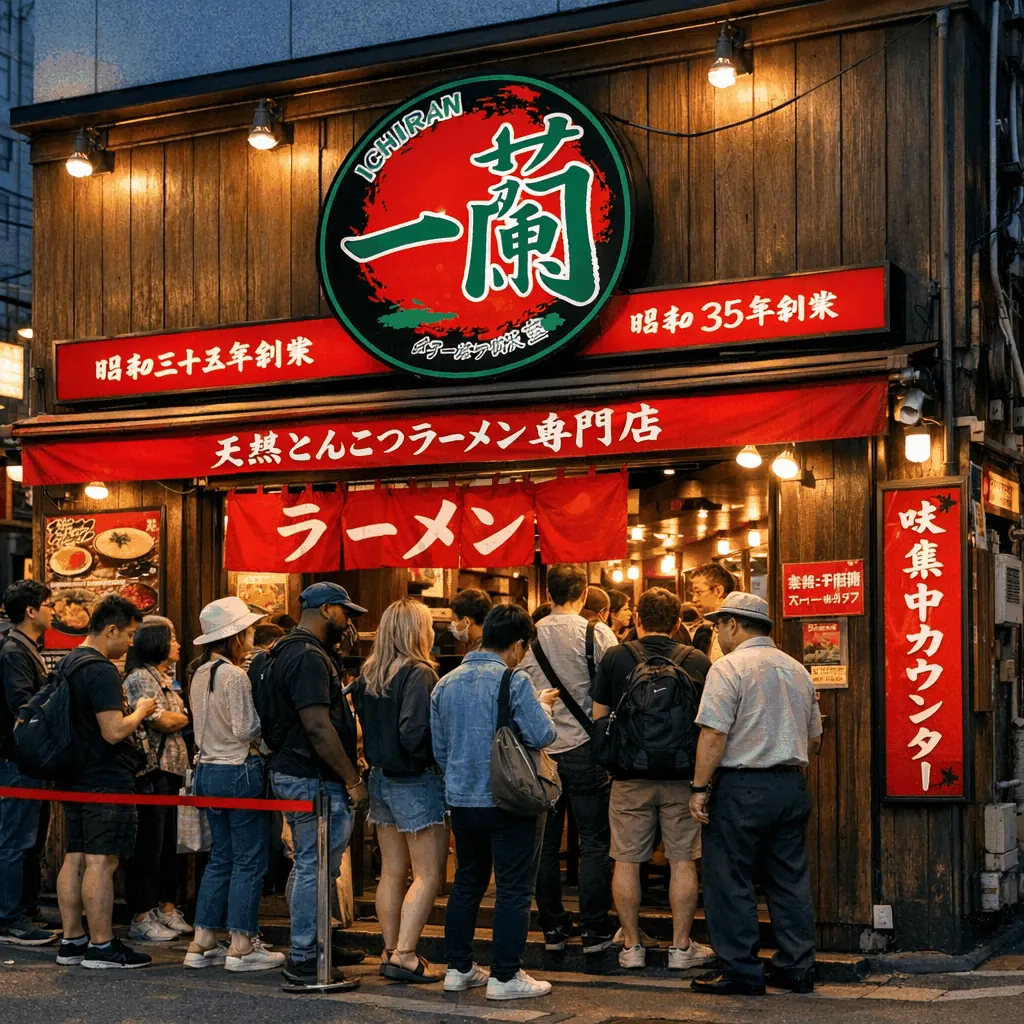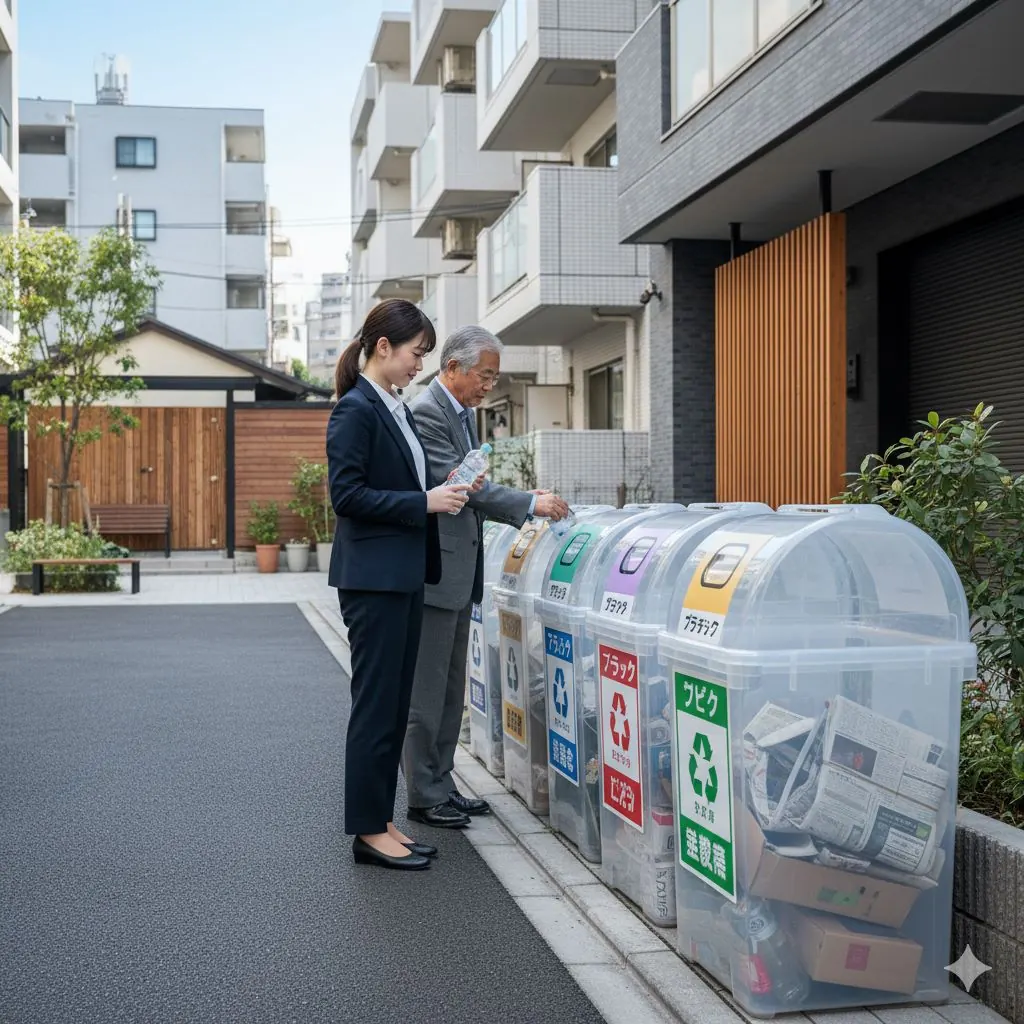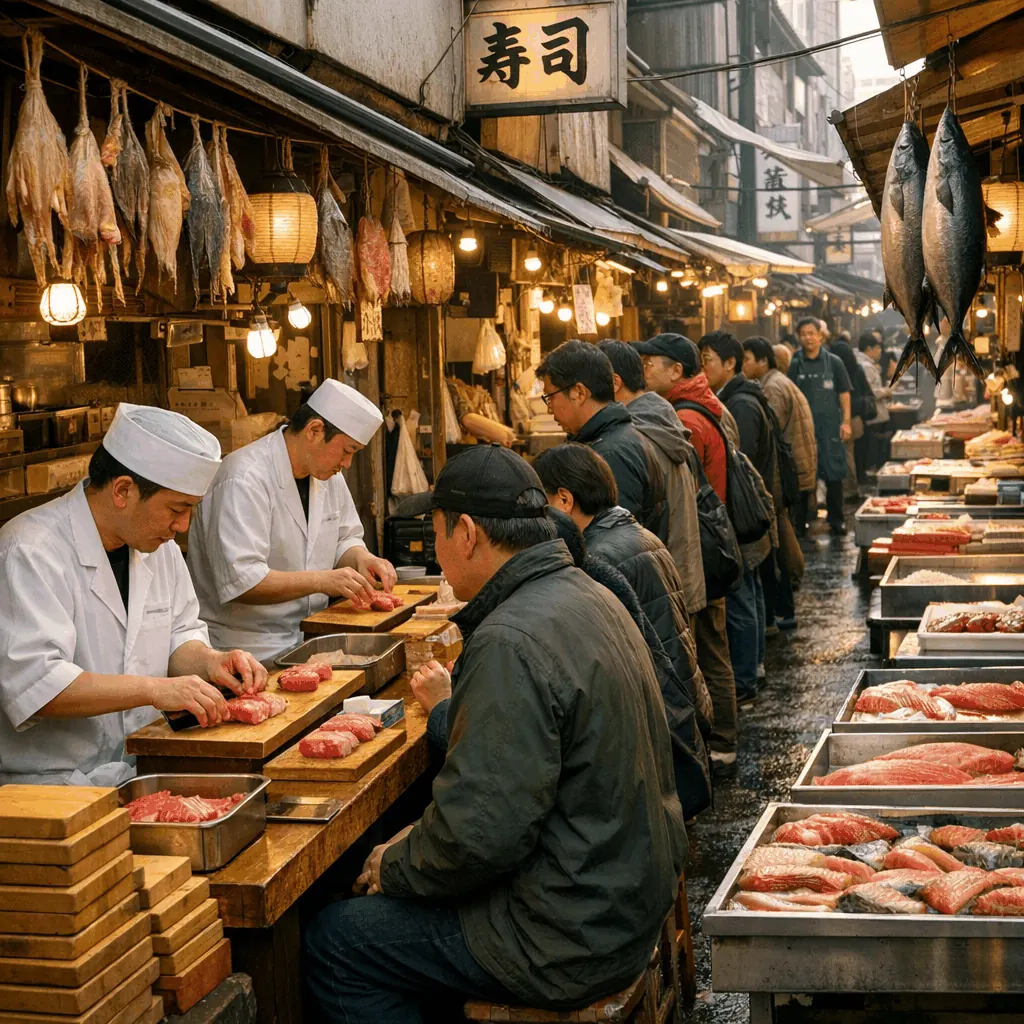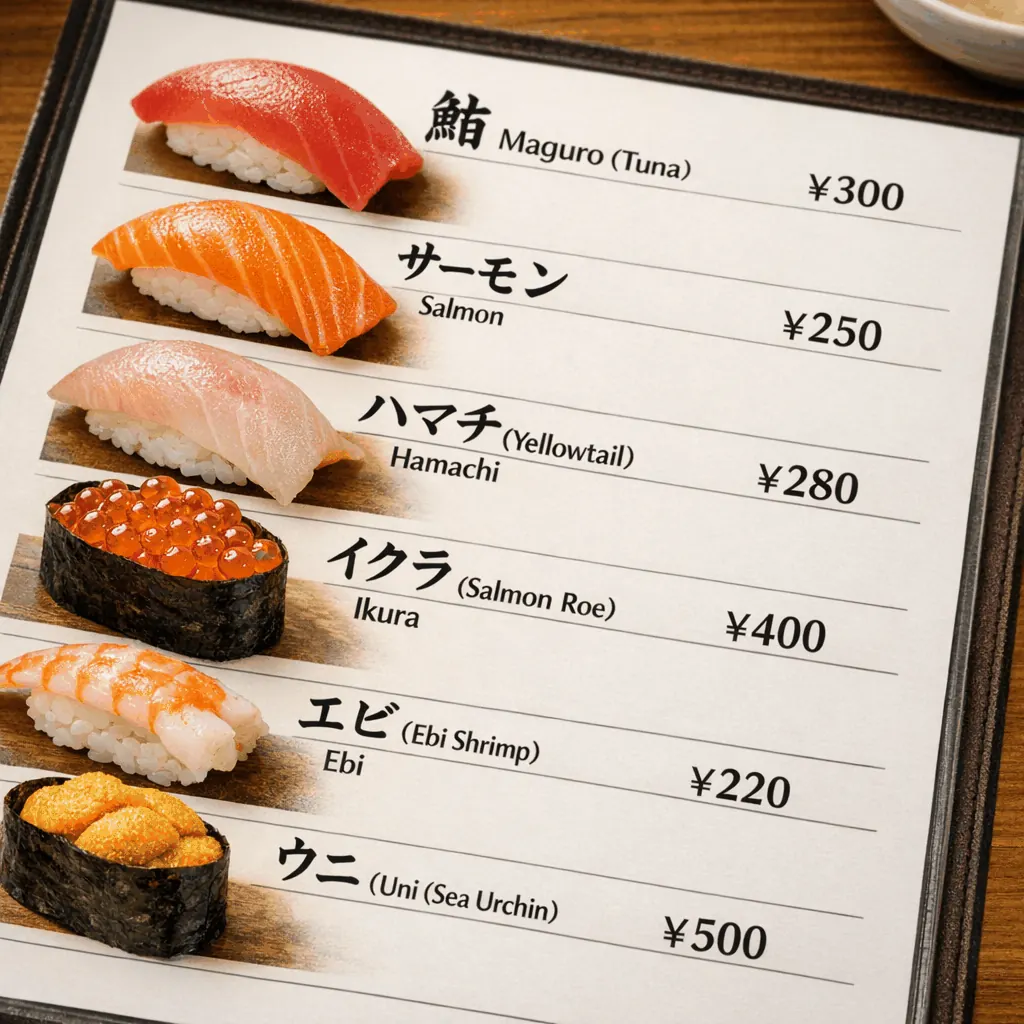
How to get a seat at Ichiran Ramen in Tokyo during peak hours?
Practical Tokyo tips to get a seat at Ichiran during peak hours: pick a less-crowded branch, arrive 15–30 min early or after 20:30, go solo, check Tabelog.

One of the first cultural surprises many expats face in Japan isn’t the language or the trains—it’s the trash.
Japan is globally admired for its cleanliness and efficient waste management. But beneath the tidy streets lies a complex and highly organized system of garbage sorting that can feel overwhelming for newcomers. Multiple waste categories, color-coded trash bags, and collection days that vary by neighborhood—all of it can be a bit much when you’re just trying to throw something away.
Still, once you understand the basics, Japan’s recycling culture reveals itself as one of the country’s most admirable traits: deeply rooted in respect for the environment and community responsibility.
In this guide, we’ll walk you through how to sort your waste, what to recycle, and how to stay in sync with your local area’s rules. And with a little help from Call Butler, you won’t have to navigate it alone.
.png)
In Japan, waste disposal is not simply about throwing things away—it's about sorting with purpose. Every household is expected to separate waste into specific categories to reduce landfill use and maximize recycling.
While rules can vary slightly by municipality, the main categories are:
📍 Tip: Always check your local ward or city office website for a PDF waste guide or sorting chart—most offer English versions.
Recycling in Japan isn’t just a system—it’s a deeply ingrained habit, backed by national pride and community responsibility. From schoolchildren to senior citizens, almost everyone participates with care and consistency.
🥤 What Gets Recycled?
The most common recyclable materials include:
Some areas also recycle:
🧼 Cleanliness is key. Items that aren’t properly rinsed may be rejected or considered burnable waste.
Japan recycles about 77% of its overall waste—more than double the global average (OECD, 2019). PET bottle recycling alone exceeds 80%, thanks to separate bins in public places, vending machine areas, and convenience stores.
This high level of participation is supported by:
🌐 Still not sure what counts as recyclable in your town? Call Butler can check the official guidelines for your municipality and send you a personalized cheat sheet—perfect for your fridge or phone.
.png)
Here’s a step-by-step breakdown of what waste disposal typically looks like for expats:
🧴 It may seem tedious at first, but you’ll quickly adjust—and it’s a great way to feel part of the local rhythm.
Even with the best intentions, Japan’s waste disposal system can feel confusing at first—especially when you’re juggling a language barrier and dozens of unfamiliar categories.
Here are a few common obstacles expats and travelers often face:
🈚 Language Barriers
Many sorting instructions are only in Japanese. If you’re unsure whether something is recyclable or not, the kanji can be intimidating. Misunderstanding a label or rule might lead to your garbage being left behind—or worse, a polite note from the building manager.
📅 Limited Collection Days
Unlike in many countries where trash is collected multiple times a week, some types of waste (like non-burnables) may only be picked up once or twice a month. If you miss your day, you’re stuck with that toaster or stack of bottles until the next cycle.
♻️ Complex Sorting Rules
Each municipality has its own nuanced system. Some require caps removed from PET bottles; others treat plastic packaging differently than plastic containers. Even longtime residents occasionally make mistakes.

(Source: Unsplash photo by tanvi sharma)
Q: Do I have to remove labels and caps from PET bottles?
A: Yes! Labels and caps are typically sorted separately. The cap may be plastic (プラ) and the bottle is PET. Rinse, remove, and sort accordingly.
Q: Can I recycle plastic food containers?
A: Sometimes. Clean plastic trays and containers often go in the plastic packaging category, but this varies by municipality. Dirty containers may be considered burnable.
Q: What happens if I sort my waste incorrectly?
A: You may receive a sticker on your trash bag explaining the issue—or it may not be collected at all. It’s not uncommon to see uncollected bags left behind for a week!
Q: Are there recycling bins on the street?
A: Rarely. You’ll usually find them at convenience stores, train stations, or vending areas. Most people carry their recyclables home to dispose of properly.
Japan’s waste management system may seem complicated at first, but it's also a reflection of the country’s deep-rooted values—cleanliness, consideration, and shared responsibility. Once you understand how the system works, participating becomes second nature—and even a source of pride.
By sorting waste properly, recycling mindfully, and following your local guidelines, you’re not just following rules—you’re joining a nationwide effort to protect the environment and keep communities clean.
Sorting trash in a new country shouldn’t be a source of stress. Whether you’re unsure about which bag to use, can’t read your ward’s PDF guide, or simply want confirmation before garbage day, Call Butler is here to help.
Our multilingual team can:
From everyday recycling questions to emergency “What do I do with this old blender?” moments, Call Butler is your reliable partner for living cleanly—and confidently—in Japan.
Living sustainably starts with understanding. Let Call Butler help you get it right from day one.

Practical Tokyo tips to get a seat at Ichiran during peak hours: pick a less-crowded branch, arrive 15–30 min early or after 20:30, go solo, check Tabelog.

Practical Tsukiji Outer Market guide: what to eat, best times to visit, and visitor tips for Tokyo’s Jogai Shijo—foods, hours, queues, cash, and etiquette.

Tokyo sushi guide for English speakers: learn restaurant types, read menus (kanji/kata/prices), use ticket machines, order politely, and handle allergies with c